It was almost midnight. I looked around and counted only myself and a handful of others – all of us diligently working. I stretched, forcing myself to look at something other than the white screen in front of me. My working space, as it has been for the past few months, consisted of my laptop, several books, a random meal and water. Sometimes, when I’m feeling for it, a cup of coffee – down to its dregs.
This was my life as a postgraduate student. Burying myself deep in academic texts and trying to make sense of writers and thinkers before me.
I would arrive at my university, usually before 10 o’clock in the morning, grab myself a cup of coffee or chai – and then dedicate myself to reading, learning or simply working on my course’ essay assignments. My chosen working space would be mine for the day, a territory marked by a random array of items.
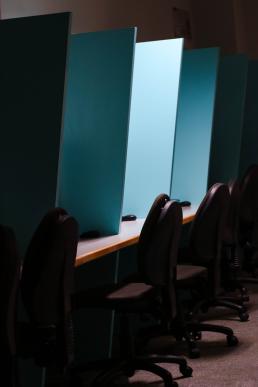
It has been almost a year since I’ve joined the postgraduate programme. Truth be told, I was genuinely worried about how I would fare doing a Masters degree. This insecurity mainly stems from my undergraduate experience, where I performed miserably at academic research and barely scraped through graduating with a low-tiered Honours.
My confidence in undertaking a Masters was primarily driven by my years as an early career journalist, and having networked with academics as part of my job. As well as the casual foray into reading social theory. For all intents and purposes, my early career plan involved undertaking a journalism Fellowship. It wasn’t until much later (after years of deliberation) I decided a research career as a viable option.
Despite this, my fears were real. My undergraduate degree was in journalism and media. And though I had dabbled in social theory during my early career – amateur reading of theoretical texts did not equate to an in-depth understanding of the subject. Yes, I can use real-world examples to contextualise theory but where do I even begin to navigate this new field that I am jumping into?

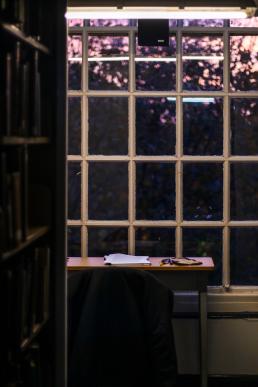
If there was one thing I appreciated about my postgraduate studies, is how it demanded so much rigor from me — both intellectually and academically.
Undertaking a postgraduate degree in the UK was an entirely different ballgame altogether from my undergraduate experience with UiTM, a Malaysian local institution mainly driven by the philosophy of producing graduates for a vocational industry. Research was not UiTM’s forte, and neither was it mine in my early twenties right up to my graduation with my undergraduate peers. So this turn was ironic, if not terrifying.
I had, thankfully, the assurance and help of my wife, who had robust research skills, and my lecturers who were always willing to entertain, critique and guide my intellectual growth into social theory.
I generally do not like to heap on the difference between learning experiences overseas and locally. It is always distasteful when comparisons (and wage discrimination) is made between the merits and qualifications of local versus overseas graduates. But I have to acknowledge at least that my postgraduate lecturers were always encouraging a healthy debate of ideas. In fact, it is an expectation. In this regard, Malaysian higher education has some ways to go. Specifically, my alma mater that is still driven by rote traditional learning principles.
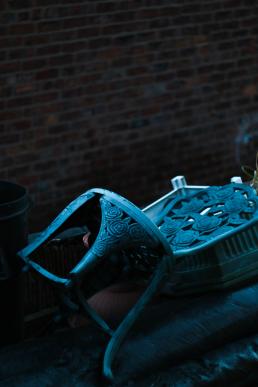
This time around, I vowed not to repeat the mistakes that had almost cost me my undergraduate degree. This time, I needed to commit myself to respect the institution and ethics of learning. This meant picking up habits that were alien to me in my first educational experience: self-directed studying, revision and diving deep into the required/recommended reading for my courses.
What I quickly learned was that my lecturers would walk in and begin their lectures with an understanding that you, their student, would have done some form of reading into the text that would inform this week’s lecture. Yes, you could get by without having read the text, but that would have missed the entire point. The lecture was a platform to elucidate ideas, to contextualise and give clarity to the reading materials, which would then give you a space to inquire or debate those ideas further.
There was a satisfaction in the weekly lectures and workshops afterwards – discussing and debating the theories of great thinkers such as Foucault, Marx, Said and Bauman, to name a few. Ideas that I had gleaned prior but was now given the tools to truly comprehend. I was learning to scratch beyond the surface of superficiality and immersing myself deep into the text. Close readings that demanded criticality in order to fully understand and contextualise. This was the definition of rigour.
At this point, I have to acknowledge that the level of rigour in media studies would vary significantly from sociology. The latter being a theory-driven field and the former more driven by a practical sense of application. It goes without saying that a theory-driven field would demand a deeper critique.
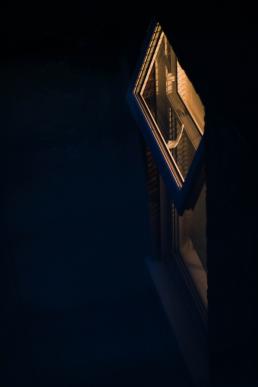

My days were similar but not routine. I would wake up early in the morning, the sun just barely peeking beyond the horizon, somewhat shrouded by my neighbourhood’s roofs. During summer, even the window blinds would not be enough to block out the sunlight from bursting through any available opening. I would then shower, pack for the day (did I need my laptop for my assignments, or did the university’s computers suffice for reading?) and head down to make myself a quick breakfast. Sometimes, pack yesterday’s dinner leftovers for today’s lunch.
Sometimes, I would bump into one of my housemates, a mild-mannered Chemistry PhD student who was in his final year. He too, like me, would leave early and return late. However, we would rarely leave at the same time in the morning as he would be out even before sunrise.
I would then make my way to university. Either by a ten-minute walk or a quick dash on an app-rented bike. Classes did not usually change how I would conduct my day, as I would usually head either to my learning commons or library afterwards. In the autumn and winter months, Manchester, known for its wet and gloom would see daily showers. I spent many a morning shaking dripping water off my back, straightening a lopsided umbrella and standing beside a radiator to warm up.
When not attending lectures, I would read – text after text — underlining and annotating. Often accompanied by either a sandwich, wrap, or chocolates (I gained an affection for Jaffa Cakes around this time). Printing was not environmentally friendly, but the tactile experience helped me in the process of absorbing and understanding knowledge. And at least now I have physical copies to refer to if I feel the urge to revisit certain ideas.
This generally illustrates my study and lecture days. While it can certainly seem mundane, it was far from it. There was a joy to be found in delving in the theories and arguments of other thinkers. To be challenged and internally examine your beliefs against others. And it was here too; I learned to read outside the required and recommended text. With the university’s entire repository available before me, how could I pass up the chance to not engage with the various dusty books that occupy the shelves? Malaysian politics, history and sociology, in particular, caught my attention.
It was safe to say that I would check out books from the library very often. The bi-monthly train commute between Manchester and Norwich, about four hours each way, provided the perfect time to immerse myself. Just me, the text, and the rapidly transforming vista outside the train window.
When I’m not heading back home, I will walk the long straight road back. I would pass though Curry Mile, arguably the Northern UK’s and Halal-cuisine jewel. Why was it called Curry Mile? The name is self-explanatory but as one approaches and passes through the menagerie of restaurants and speciality shops – there is an unmistakable and delicious scent of curry. And for a tight-budget student like me, the temptation to not waltz right into one of these outlets was tantamount. It did not help that the prices too, if you knew where to look, were affordable.
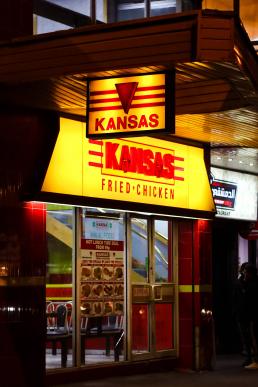
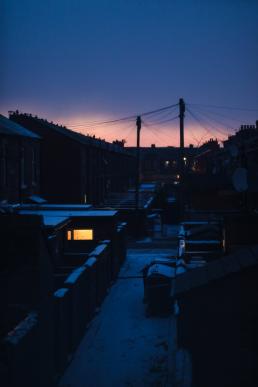
Of course, not every day was dedicated to studying and reading. Once a week, I would allow myself to explore the city that I resided in. I would either walk or take the bus to the city centre. Sometimes, with my camera but usually with my journal. The many quirky cafes dotted throughout the city, especially those concentrated in the gentrified Northern Quarter were the perfect place to sit down, enjoy a cup of coffee and unfold my reflections and thoughts onto paper.
In the tradition of Walter Benjamin, I attempted to become a flâneur as he did – immersing into urban life and sociology through exploration; an act of psychogeography. These days offered me a well-needed respite from my academic life, much as I enjoyed it. There was life in Manchester, despite its grimy streets and rough individuals. As an urban existence, it offered opportunities and intrigue in every alleyway and turn. There was life, art, food, history, heritage and entertainment for those who seek it. For me, the opportunity for urban observation and a space to carve into my reflections was more than enough.
Outside academia, I also found myself getting involved in Malaysian student movements like #Liberasi, run single-handedly by a very capable individual. And to an extent, being a part of Freedom of Expression research project with the United Kingdom & Eire Malaysian Law Students’ Union (KPUM). Though my involvement in these initiatives was limited due to my academic commitments – I hope that my contribution, at the very least, was born out of public duty.
But I cannot end this without addressing the rock and pillar of my postgraduate experience. While my lecturers, the university’s institution, my academic course and Manchester city certainly allowed me to flourish – I could not have gone through this entire Masters without the support, love and guidance of my wife. My bi-monthly returns, though marked by long (and expensive) commutes, with only short weekends together before I headed on an early morning train at the dawn of the new week, was a challenging experience. For the both of us. But I could not have made it without her.
She has helped give me the confidence to embark on this journey. From someone who knew nothing of the fundamental of research, to a postgraduate who left the university with a Distinction in hand. Her support, more than anyone’s was what gave me the will and drove to do better. Of course, this acknowledgement also extends to my family; my parents, siblings, dear grandmother, in-laws and close friends — all who had offered me emotional support and a semblance of home when I was far away.
My postgraduate experience with the University of Manchester is one that has marked my foray into social theory, and hopefully offering me a chance at expanding my career – from journalism into research. Now, for the next steps.